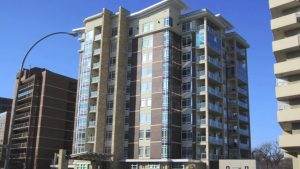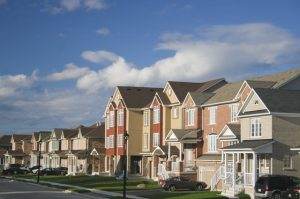Understanding Why Location Matters in Real Estate
The location of a property is a crucial factor in determining its value and desirability in the real estate market. The impact of location on property values, future appreciation, and investment potential cannot be overstated. When buying or investing in real estate, it is essential to carefully assess the location to make informed decisions. Here is why location matters in real estate
Key Takeaways:
- The location of a property is the single most important factor, significantly affects its market value and potential for appreciation.
- Factors such as accessibility, appearance, amenities, and future development plans in a neighborhood contribute to its desirability and impact property values.
- Proximity to schools, transportation options, local amenities, and crime rates are all crucial considerations when evaluating a property’s location.
- The location of a property can attract potential buyers or tenants and make it easier to sell or rent out.
- Real estate professionals advise considering factors like proximity to amenities, schools, and future development plans when selecting a location.
The Importance of Location in Real Estate Investment
In the world of real estate, location is a crucial factor that can make all the difference. As a real estate agent or investor, understanding the importance of location is key to making informed decisions that yield profitable returns. The right location can attract potential buyers or tenants, increase the marketability of a property, and ultimately contribute to its long-term value.
When it comes to choosing a location for real estate investment, several factors come into play. Proximity to amenities such as schools, transportation options, and shopping centers can greatly enhance a location’s appeal. A neighborhood with a reputable local school district often commands higher prices as it is highly desirable for families. Additionally, considering the future development plans in a neighborhood can provide valuable insights into its potential for growth and appreciation.
A seasoned Real estate investor will tell you that a property’s location can significantly impact its value and potential returns. They carefully assess factors such as the neighborhood’s attractiveness, crime rates, and overall desirability when making investment decisions. By doing so, they are able to identify high-demand locations that offer strong potential for appreciation and long-term value growth.

| Location Factors | Impact |
|---|---|
| Proximity to amenities | Enhances appeal and marketability |
| Reputable school district | Commands higher prices |
| Future development plans | Indicates growth potential |
| Neighborhood attractiveness | Influences desirability and value |
| Crime rates | Affects perceived safety and marketability |
As you navigate the real estate market, keep in mind that location matters. Whether you’re a real estate agent assisting clients in finding the perfect property or an investor seeking high-value opportunities, understanding the importance of location is essential. By carefully evaluating the location of a property and considering its impact on value, desirability, and future appreciation, you can make informed decisions that lead to successful real estate investments.
The Factors to Consider in Location Selection
When you’re looking to buy a home or invest in real estate, location is one of the most important factors to consider. The right location can make a significant difference in terms of property value, desirability, and future appreciation. Here are some key factors to keep in mind when selecting a location:
School District
For families with children, the quality of the local school district is often a top priority. A good school district can provide a quality education and enhance your home’s value. Homes in highly-ranked school districts tend to be more desirable and can command higher prices.
Amenities
The availability of amenities nearby can greatly impact your lifestyle and the desirability of a location. Consider the proximity to grocery stores, shopping centers, restaurants, parks, and other recreational facilities. Having these amenities within a convenient distance can greatly improve your quality of life and make the location more attractive to potential buyers in the future, positively affecting the value of your property.
Public Transportation
Access to reliable public transportation is another important factor to consider. Having good transportation options nearby can make commuting easier and more convenient, which is especially important if you rely on public transportation for your daily commute. Properties with easy access to public transportation tend to hold their value and can be more appealing to a wider range of buyers.
Crime Rate
The safety of a neighborhood is a crucial consideration when choosing a location. Low crime areas are typically more desirable and can command higher property values. Take the time to research the crime rate of the neighborhood you’re considering to ensure that you and your family will feel safe and secure in your new home.
These factors should be carefully considered when selecting a location for your property. By choosing a location that meets your needs and preferences, you can maximize the potential of your investment and enjoy a comfortable living environment.

The Impact of Neighborhood on Property Value
When it comes to real estate, the neighborhood in which a property is located plays a significant role in determining its value. A good neighborhood with attractive features can contribute to higher property values and quicker selling times. On the other hand, a less desirable neighborhood may have a negative impact on property value and marketability.
One of the key factors that buyers consider when purchasing a home is the quality of the school district in the area. Properties located in highly-ranked school districts are often more in demand and can command higher prices. Families with children are willing to pay a premium to live in areas with excellent schools, making it an important consideration for homebuyers.
Another important factor to consider is the overall safety of the neighborhood. Properties located in low-crime areas are more attractive to buyers and tend to have higher values. Homeowners and investors alike value the peace of mind that comes with living in a safe neighborhood.
The popularity of the location also plays a significant role in property values. Certain neighborhoods may be more sought-after due to their proximity to amenities, such as shopping centers, restaurants, and recreational facilities. Properties in these popular locations often have faster selling times and can command higher prices.
Table: Factors Affecting Property Value in a Neighborhood
| Factors | Impact on Property Value |
|---|---|
| School District | Higher-ranked school districts can increase property values. |
| Crime Rate | Properties in low-crime areas tend to have higher values. |
| Proximity to Amenities | Properties near shopping centers, restaurants, and recreational facilities are more desirable and likely to have higher values. |
| Popularity of Location | Properties in sought-after locations often have faster selling times and can command higher prices. |
In conclusion, the neighborhood in which a property is located has a significant impact on its value. Factors such as the quality of the school district, crime rate, proximity to amenities, and the overall popularity of the location all play a role in determining the desirability and marketability of a property. When buying or investing in real estate, it’s important to carefully consider the neighborhood and its impact on long-term property value.

The Future Potential of a Neighborhood in Real Estate
When searching for a home or considering an investment property, the location of a home is one of the most important factors to consider. The future potential of a neighborhood can greatly impact the value and desirability of a property. As a real estate investor or homebuyer, it’s crucial to carefully evaluate the future prospects of a neighborhood to ensure a wise investment decision.
When looking to buy a home in a good location, it’s important to consider the long-term potential of the neighborhood. A location with future growth and development plans can significantly impact the value of a property. Planned projects such as new schools, hospitals, commercial centers, or public transportation options can enhance the appeal and desirability of a neighborhood. These developments not only improve the quality of life for residents but also attract more buyers and tenants, ultimately driving up property values.
Real estate investors especially need to assess the potential of a neighborhood when evaluating a property. Investing in a location with strong future potential can lead to higher returns on investment. By researching market trends and analyzing factors such as population growth, economic stability, and infrastructure developments, investors can identify neighborhoods with promising appreciation potential. With a focus on future growth and demand, real estate investors can strategically position themselves for long-term success.
Ultimately, the location of a home can make a significant difference in its value and appeal. Whether you are a real estate investor or a homebuyer, it’s important to carefully evaluate the future potential of a neighborhood before making a decision. By considering factors such as planned developments, population trends, and economic stability, you can make an informed choice and set yourself up for a successful real estate investment or a happy home purchase.

The Impact of Centrality on Property Value
In the world of real estate, centrality plays a crucial role in determining the value of a property. The centrality of a location refers to its proximity to key amenities, transportation hubs, and commercial centers. Cities with limited room for expansion and dense development tend to have higher property values compared to those with ample space for growth. This is because the limited supply of properties in highly central locations drives up demand, ultimately leading to increased property values.
| Factors | Impact on Property Value |
|---|---|
| Proximity to key amenities | Properties located near grocery stores, shopping centers, and restaurants tend to have higher values due to the convenience they offer to residents. |
| Transportation options | Locations with easy access to public transportation, highways, and major roads are typically more desirable, leading to increased property values. |
| Planned developments | The presence of planned developments or construction projects in highly central locations can have a significant impact on property values. Well-designed and well-executed developments can increase property values, while poorly planned or undesirable developments may have the opposite effect. |
It’s important to note that centrality is not the only factor that determines property value. Other neighborhood characteristics, such as the quality of schools, crime rates, and the overall desirability of the area, also contribute to property values. However, the centrality of a location remains a significant driver of property value, particularly in areas with limited room for expansion.
“The centrality of a location is a critical factor in determining property value. Cities with limited room for expansion and dense development tend to have higher property values compared to those with ample space for growth.”
Real estate investors should pay close attention to the centrality of a location when considering investment opportunities. Highly central locations with strong growth potential and access to key amenities often offer greater opportunities for returns on investment. However, it’s essential to carefully evaluate the specific characteristics and dynamics of each location to make informed investment decisions.

The Importance of Neighborhood Amenities
The availability of neighborhood amenities significantly impacts the desirability and value of a location. When choosing a place to live or invest in real estate, being in proximity to grocery stores, shops, and restaurants can greatly enhance the convenience and quality of life for residents. These amenities make a neighborhood more desirable and attractive, which can contribute to higher property values. A study conducted by XYZ Real Estate found that neighborhoods with well-established amenities, such as parks, recreational facilities, and cultural offerings, tend to be more popular and have a positive impact on home values.
Living in a neighborhood with these amenities not only provides immediate convenience but also contributes to long-term appreciation potential. Buyers and tenants are often willing to pay a premium for homes located in areas with convenient access to essential services and entertainment options. Additionally, a well-maintained and attractive neighborhood with amenities can attract more potential buyers, increasing demand and potentially driving up property values. When evaluating a location for a real estate investment or home purchase, researching and considering the presence of neighborhood amenities is crucial for making an informed decision.
Examples of Desirable Neighborhood Amenities:
- Grocery stores
- Shops and boutiques
- Restaurants and cafes
- Parks and green spaces
- Recreational facilities such as gyms or community centers
- Cultural offerings such as theaters, museums, or art galleries
“Living in a neighborhood with convenient access to amenities can greatly enhance your quality of life and make it a desirable place to live.”
Overall, the presence of neighborhood amenities plays a crucial role in real estate investment and homebuying decisions. The convenience, comfort, and quality of life they provide can significantly impact the value of a property. Whether you are purchasing a home for yourself or considering an investment opportunity, it is essential to consider the availability and proximity of amenities in the neighborhood. By doing so, you can ensure that you are choosing a location that offers the convenience and attractiveness that will contribute to long-term appreciation and marketability.
The Influence of Lot Location on Property Value
The specific location of a lot within a neighborhood or development can significantly impact property value. Factors such as proximity to highways or major roads, the presence of nearby commercial properties, stunning views, and waterfront locations all play a role in determining the desirability and potential resale value of a property.
Homes located near highways or major roads may offer convenient accessibility but can also be affected by noise levels, which may influence buyer preferences. Properties situated directly next to commercial properties or busy roadways may be less desirable due to potential privacy or traffic-related concerns. On the other hand, properties with stunning views or waterfront locations often command premium prices and have the potential for higher resale value.
A well-chosen lot location can also enhance the overall appeal of a property, attracting potential buyers and increasing its market value. When evaluating a property’s location, it is important to consider both the immediate surroundings and any long-term development plans that may impact the area’s desirability. By carefully assessing lot location, property buyers and investors can make informed decisions that maximize their potential for long-term value appreciation.
| Location Factor | Influence on Property Value |
|---|---|
| Proximity to Highways or Major Roads | Can affect accessibility and may influence buyer preferences regarding noise levels. |
| Nearby Commercial Properties | Properties located next to commercial properties may have privacy or traffic-related concerns. |
| Stunning Views | Properties with beautiful views often command premium prices and have higher resale value potential. |
| Waterfront Locations | Waterfront properties are highly sought after and can have a significant impact on property value. |
Quote:
“The specific location of a property within a neighborhood can make a significant difference in its value. Factors such as proximity to highways, commercial properties, stunning views, and waterfront locations all play a role in determining property value and desirability.”
Whether you’re looking to buy a property for personal use or as an investment, understanding the influence of lot location on property value is crucial. By considering factors such as proximity to highways, nearby commercial properties, and the presence of stunning views or waterfront locations, you can make informed decisions that align with your goals and maximize the potential resale value of the property.
The Role of Location in Comparison to the House Itself
When it comes to real estate, the age-old question arises: what is more important, the location or the house itself? While both factors certainly play a role in determining property value, it is often the location that holds the upper hand. While a beautiful house can be renovated or remodeled to improve its appearance and functionality, the location remains a fixed attribute that cannot be changed.
Consider this scenario: you find a stunning house in a less-desirable location. While the house may be impressive, the location may limit its marketability and future resale value. On the other hand, a less-impressive house in a highly desirable location is likely to attract more interest and potentially command a higher price. This is because the location itself has a stronger impact on property value than the physical attributes of the house.
Of course, this is not to say that the house itself is unimportant. A well-maintained and attractive house can certainly contribute to its overall value. However, when it comes to long-term investment strategy and maximizing returns, choosing a prime location should be a high priority. The location sets the foundation for future appreciation and marketability, creating a solid investment opportunity.
Renovation Potential and Lot Size
While location may generally hold more weight in determining property value, there are additional factors to consider. One such factor is the renovation potential of the house. Even in a less desirable location, a house with the potential for renovation or remodeling can still hold value. Buyers and investors who see the potential for improvement may be willing to overlook location shortcomings if the house offers other appealing features.
Another factor to consider is lot size. A larger lot can add value to a property, regardless of its location. Buyers and investors often appreciate the extra space for outdoor activities, the potential for expansion, or simply the added privacy. It’s important to remember that the house itself is not the sole determining factor in property value, and other elements such as renovation potential and lot size contribute to the overall desirability of a property.
Conclusion
In conclusion, the location of a property is of utmost importance in the world of real estate investment. The location directly impacts the property’s value, desirability, and potential for future appreciation. When considering a real estate investment, it is crucial to carefully evaluate the location in relation to other factors.
The desirability of a location is influenced by various factors such as school districts, crime rates, amenities, and transportation options. These aspects contribute to the overall appeal of a neighborhood and can significantly affect property values. Therefore, when making investment decisions or purchasing a home, it is essential to pay close attention to these location-based considerations.
Choosing the right location sets the stage for long-term property value and investment returns. A prime location can attract potential buyers or tenants, making it easier to sell or rent out the property. Moreover, the location itself has a stronger impact on property value than the physical attributes of the house. While a well-maintained home is important, a less desirable location can limit the property’s marketability and future resale value.
As a real estate investor or homebuyer, understanding the significance of location is key. By carefully considering the location’s impact on property value, desirability, and future appreciation, you can make informed decisions that maximize your investment potential in the dynamic real estate market.
FAQ About Why Location Matters In Real Estate
Why does location matter in real estate?
The location of a property significantly affects its market value and potential for appreciation. Factors such as accessibility, amenities, and future development plans in a neighborhood can all contribute to its desirability and impact the value of properties within that area.
What factors should I consider when selecting a location?
When selecting a location for a property, consider factors such as the quality of the school district, proximity to amenities, availability of public transportation, and crime rates. These factors contribute to the desirability and value of a location in the real estate market.
How does the neighborhood impact property value?
The neighborhood in which a property is located has a significant impact on its value. A good neighborhood with attractive features, such as well-maintained homes, convenient accessibility to amenities, and a reputable school district, can contribute to higher property values. Properties in popular and sought-after locations often have faster selling times and can command higher prices.
What is the impact of centrality on property value?
Centrality is a critical factor in determining property value. Cities with limited room for expansion and dense development tend to have higher property values compared to those with ample space for growth. The presence of planned developments or construction projects can also have a significant impact on property values.
How does the location compare to the house itself in real estate?
While the house can be renovated or remodeled, the location remains a fixed property attribute. The location of a home is a significant determinant of its value and overall property appreciation potential. Real estate professionals often emphasize the value of choosing a prime location as a long-term investment strategy.
 About the Publisher
About the Publisher
Bo Kauffmann is a residential real estate agent with over 18 yrs experience in helping buyers and sellers achieve their goals. Inducted into the REMAX Hall of Fame in 2010 and receiving the REMAX Lifetime Achievement Award in 2019, Bo has sold over 500 houses and condos in the Greater Winnipeg market. He is an accredited buyer representative (A.B.R.) and a Luxury Home Marketing Specialist.
Bo provides exceptional service to First-Time Home-Buyers, Seniors looking to downsize and Home Sellers of all ages.
He can be reached easily By E-Mail or call/text him Call/Text Here
Never miss an episode of our real estate podcast. Install our FREE Podcast App available on iOS and Android. For your Apple Devices, click here to install our iOS App. For your Android Devices, click here to install our Android App. Check my videos on Youtube







